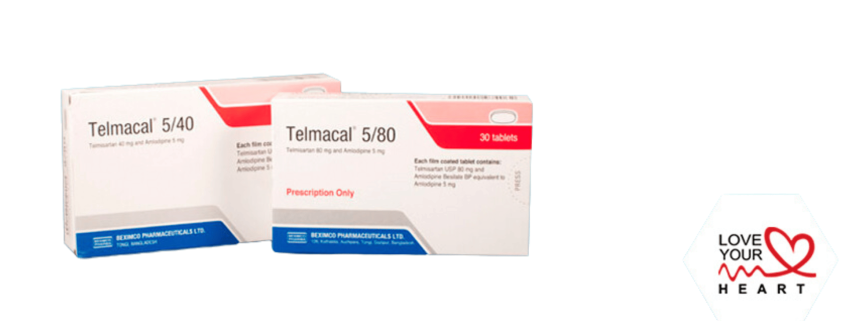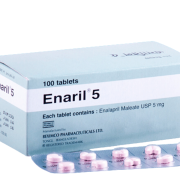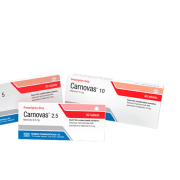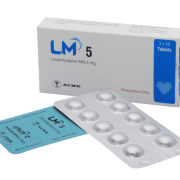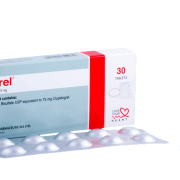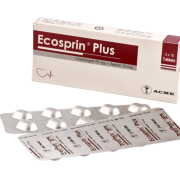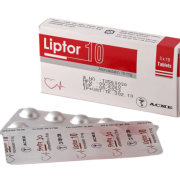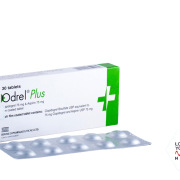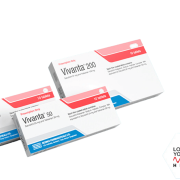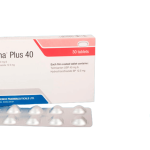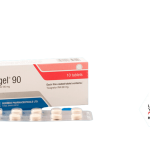Telmacal
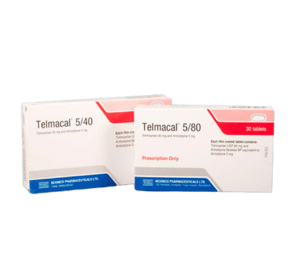
Generic Name: Telmisartan and Amlodipine
Dosage Form: Tablet
TG Name: Cardiovascular
1. What is Telmacal®?
Telmacal® is the combination of Telmisartan and Amlodipine.
2. How Telmacal® works in our body?
Telmisartan is an angiotensin II receptor antagonist. Telmisartan keeps blood vessels from narrowing, which lowers blood pressure and improves blood flow.
Amlodipine is a Dihydropyridine calcium channel blocker. Amlodipine relaxes (widens) blood vessels and improves blood flow.
3. What is the indication of Telmacal®?
This combination is used for the treatment of essential hypertension in adults.
Replacement Therapy: Patients receiving Telmisartan and amlodipine from separate tablets may instead receive Telmisartan & Amlodipine containing the same component doses.
Add-On Therapy: Telmisartan & Amlodipine is indicated in patients whose blood pressure is not adequately controlled on Telmisartan or amlodipine monotherapy.
Initial Therapy: Telmisartan & Amlodipine may also be used as initial therapy in patients who are likely to need multiple drugs to achieve their blood pressure goals. Base the choice of Telmisartan & Amlodipine tablets as initial therapy for hypertension on an assessment of potential benefits and risks including whether the patient is likely to tolerate the starting dose of Telmisartan & Amlodipine tablets.
Patients with moderate or severe hypertension are at relatively high-risk for cardiovascular events (eg, stroke, heart attacks and heart failure), kidney failure and vision problems, so prompt treatment is clinically relevant. Consider the patient’s baseline blood pressure, the target goals and the incremental likelihood of achieving goals with a combination compared to monotherapy when deciding whether to use Telmisartan & Amlodipine tablets as initial therapy. Individual blood pressure goals may vary based upon the patient’s risk.
4. What are the dosage & administration of Telmacal ®?
Each tablet contains Telmisartan 40 mg & Amlodipine 5 mg
Adults: One tablet should be taken once daily. Maximum Recommendation Dose: two tablets/day.
Replacement Therapy: Patients receiving Telmisartan and amlodipine from separate tab can instead receive. Telmisartan & Amlodipine containing the same component doses in 1 tablet once daily eg, to enhance convenience or compliance.
Add-On Therapy: Telmisartan & Amlodipine may be administered in patients whose blood pressure is not adequately controlled with amlodipine or Telmisartan alone. Patients treated with amlodipine 10 mg who experience any dose-limiting adverse reactions e.g., edema, may be switched to Telmisartan & Amlodipine 40/5 mg once daily, reducing the dose of amlodipine without reducing the overall etched antihypertensive response.
Individual dose titration with the components (i.e., Amlodipine and Telmisartan) is recommended before changing to the fixed-dose combination. When clinically appropriate, direct change from monotherapy to the fixed-dose combination may be considered.
Initial Therapy: A patient may be initiated on Telmisartan & Amlodipine if it is unlikely that control of blood pressure would be achieved with a single agent.
Usual Starting Dose: 40/5 mg once daily. Initial therapy with Telmisartan & Amlodipine is not recommended in patients 75 years or with hepatic impairment. Correct imbalances on intravascular volume- or salt-depletion, before initiating therapy with Telmisartan & Amlodipine tablet.
Telmisartan & Amlodipine may be taken with or without food.
Children and Adolescents: Telmisartan & Amlodipine is not recommended for use in patients below 18 years due to a lack of data on safety and efficacy.
Elderly: No dose adjustment is necessary for elderly patients. Limited information is available in the very elderly patients.
5. What are the contraindications of Telmacal®?
Hypersensitivity to Telmisartan, amlodipine, dihydropyridine derivatives or to any of the excipients of Telmisartan & Amlodipine. Biliary obstructive disorders, severe hepatic impairment & hypotension, cardiogenic shock, left ventricle outflow tract obstruction, hemodynamically unstable heart failure after acute MI.
6. What are the adverse effects of Telmacal®?
The most common adverse reactions include Dizziness, peripheral edema. Somnolence, migraine, headache, paresthesia, vertigo, bradycardia, palpitations, hypotension, orthostatic hypotension, flushing, cough, abdominal pain, diarrhea, nausea, pruritus, arthralgia, muscle spasms, myalgia, erectile dysfunction, asthenia, chest pain, fatigue, edema, increased hepatic enzyme.
7. What would be the storage condition of Telmacal®?
Keep in a dry place, below 30° C. Protect from light. Keep out of the reach of children.
Moreover
Telma® 80 is available which is a preparation of Telmisartan
Telma® Plus 40 is available which is a combination of Telmisartan and Hydrochlorothiazide.

